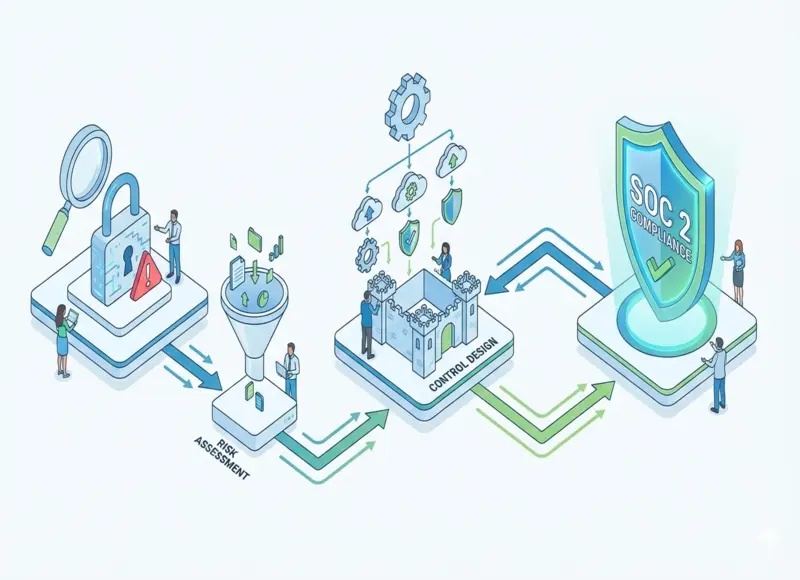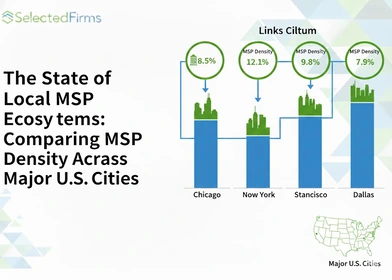Table of Contents
A practical guide to the translation services that help web development companies expand worldwide, including certified, notarized, technical, and localized solutions.

Web development companies are no longer serving only local clients. Whether it’s designing platforms for startups in Europe, maintaining enterprise solutions in the U.S., or supporting e-commerce in Asia, web development work is now global. This brings exciting opportunities but also new challenges. One of the biggest hurdles companies face when expanding abroad is dealing with documents in different languages.
From contracts to compliance paperwork to user manuals, marketing campaigns are held as translation services that build predisposition for trust and avoid expensive blunders. One mistake can delay a project, stress the client relationship, or even be a legal setback. So, let's get acquainted with the various kinds of translation services available to help web development companies scale their operations around the world.
Why Translation Matters for Web Development Firms
Accurate translation is more than just converting words. It ensures your business can operate smoothly across borders. Here’s why it matters:
- Cross-border contracts: Clear translations reduce the risk of misunderstandings in service agreements.
- Client relationships: Communicating in a client’s native language builds credibility and trust.
- Compliance and regulation: Governments and institutions abroad may only accept official translations.
- Product adoption: Websites, apps, and platforms that feel “local” perform better in global markets.
In short, good translation is not a luxury. It is a necessity for growth.
Types of Translation Services Businesses Should Know
Certified Translation
A certified translation is signed by a translator or a translation agency to confirm that the document is an accurate and complete translation. These are the requirements for HR paperwork, employee relocation documents, and the like, or simply compliance requirements.
For instance, if your company is sponsoring developers from overseas, certified translations of diplomas or background checks may be requested by immigration authorities.
Notarized Translation (The Legal Safeguard)
A notarized translation is one step further in terms of certification, as the notary public verifies the identity of the translator signing the certification. The notary does not verify the quality of the translation, though: his role is only to verify the authenticity of the signature.
For web development companies, notarized translations may come into play in:
- Incorporation papers when opening a branch abroad.
- Government tender submissions for IT projects.
- High-value client contracts must be legally enforceable.
Not every document requires this level of validation, but when legal compliance is involved, notarization provides peace of mind.
Technical Translation
This includes software manuals, API documentation, training manuals, product manuals, and whatnot. It has to be accurate because users or developers will directly rely on this, hence an erroneous translation about a particular piece of code or being in a certain step of setup has the capacity to cause much time in terms of debugging or spoiling the user experience.
Marketing & Website Localization
Localization is not the mere translation of a text from one language to another. It changes content into language, tone, imagery, and even design considerations best suited to the culture of the target market. For web development companies, this often means:
- Translating website copy and CTAs in a way that feels natural to local users.
- Adjusting visuals or color schemes to suit cultural expectations.
- Ensuring SEO keywords align with how people search in their native language.
When You Really Need Notarization
While notarization isn’t part of everyday translation needs, there are times when it becomes mandatory. Web development companies may encounter these scenarios:
- Company formation abroad: Articles of incorporation, shareholder agreements, or tax registrations may need notarized translations for acceptance.
- Government projects or tenders: If you’re bidding for an international digital transformation project, notarized translations of financial reports or certifications may be required.
- Client contracts in regulated industries: Some sectors, like finance or healthcare, demand notarized translations to ensure documents hold up legally in foreign jurisdictions.
- The rule of thumb: The notarization of documents is essential when they are to be filed with authorities or may be contested in court. Otherwise, a certified translation is generally sufficient.
Choosing the Right Translation Partner for Your Business
Not all translation providers are identical. When web development companies have on hand contracts, technical manuals, and compliance documents that are sensitive, it truly matters who they partner with.
-
Industry Expertise
Look for agencies that have experience with IT, software, and legal translations. A translator who understands technical terms and business structures will deliver far more accurate results. -
End-to-End Services
The best partners don’t just translate — they also provide certified and notarized translations under one roof. This saves time, reduces risk, and ensures a secure chain of custody for your documents. - Confidentiality and Security
Web development projects often involve sensitive information, from client contracts to intellectual property. A trustworthy translation agency should have strict confidentiality agreements and secure processes in place.
- Scalability and Speed
If you’re planning rapid expansion, you’ll want a partner who can handle urgent projects, multiple languages, and ongoing needs without sacrificing quality.
- Long-Term Collaboration
Building a relationship with a reliable translation partner ensures consistency across all your projects. They’ll get to know your company’s preferred terminology, tone, and compliance requirements, making each project smoother than the last.
The right translation partner is not just a vendor. They become part of your company’s growth strategy and help you operate confidently across borders.
How Web Development Companies Can Save Time & Costs on Translation
Translation and notarization don’t have to be overwhelming. A few smart steps can save both money and time:
- Work with agencies that handle everything in-house: Certified translations, notarization, and even digital notarization services can be bundled. This avoids mailing documents back and forth.
- Plan early: Don’t wait until the last minute to translate legal documents for a tender or compliance filing. Build translation into your project timeline.
- Verify requirements upfront: Ask the client, government office, or university exactly what type of translation is needed before you order it. This avoids paying extra for notarization when it’s not required.
- Utilize e-notary where accepted: Many institutions now accept electronic notarization, which speeds up turnaround time.
Final Thoughts
For web development companies, going global means more than adapting code. It also means adapting communication. Translation ensures your documents, contracts, and platforms are understood and accepted worldwide.
Certified translations stand for accuracy and trust. A notarized translation, which is demanded less often, works as a safeguard in serious legal or compliance-based situations. In a similar way, technical translation must ensure that your product remains functional in different languages, and localization will eventually allow your brand to relate in a sincere manner with international audiences.
To put it simply, translation is more than mere words on paper: it is an enabling force for growth, protection of your business, and forming strong ties in foreign lands. Notarization is but one piece of that puzzle; knowing the ins and outs of when and how to use it will keep your smooth and professional impression away from your expansion.
Recent Blogs
Scaling Smarter: How Property Management Software Simplifies Rental Management
-
10 Feb 2026
-
6 Min
-
34
The State of Local MSP Ecosystems: Comparing MSP Density Across Major U.S. Cities
-
06 Feb 2026
-
7 Min
-
260









